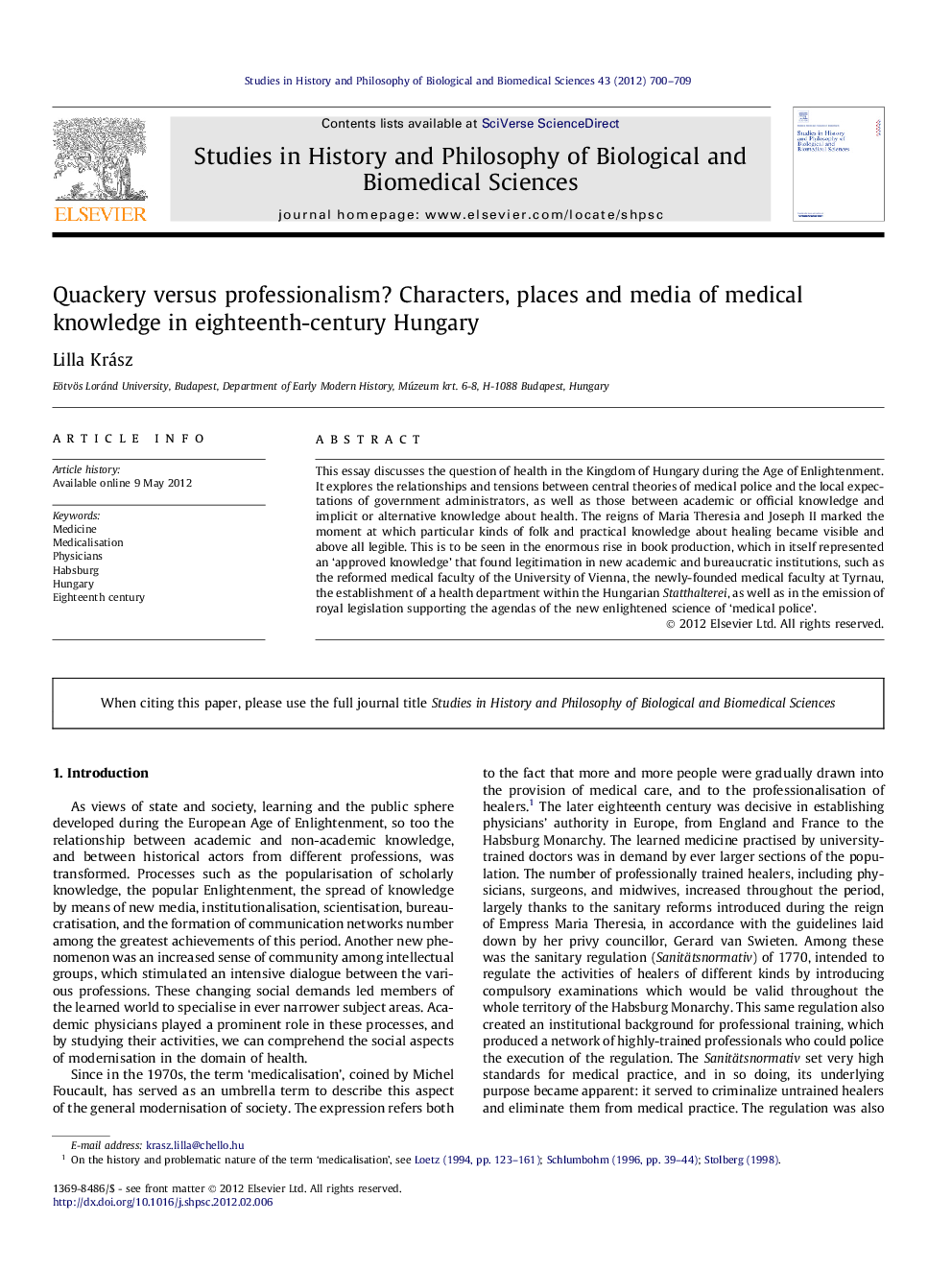| Article ID | Journal | Published Year | Pages | File Type |
|---|---|---|---|---|
| 7553011 | Studies in History and Philosophy of Science Part C: Studies in History and Philosophy of Biological and Biomedical Sciences | 2012 | 10 Pages |
Abstract
This essay discusses the question of health in the Kingdom of Hungary during the Age of Enlightenment. It explores the relationships and tensions between central theories of medical police and the local expectations of government administrators, as well as those between academic or official knowledge and implicit or alternative knowledge about health. The reigns of Maria Theresia and Joseph II marked the moment at which particular kinds of folk and practical knowledge about healing became visible and above all legible. This is to be seen in the enormous rise in book production, which in itself represented an 'approved knowledge' that found legitimation in new academic and bureaucratic institutions, such as the reformed medical faculty of the University of Vienna, the newly-founded medical faculty at Tyrnau, the establishment of a health department within the Hungarian Statthalterei, as well as in the emission of royal legislation supporting the agendas of the new enlightened science of 'medical police'.
Related Topics
Life Sciences
Agricultural and Biological Sciences
Agricultural and Biological Sciences (General)
Authors
Lilla Krász,
